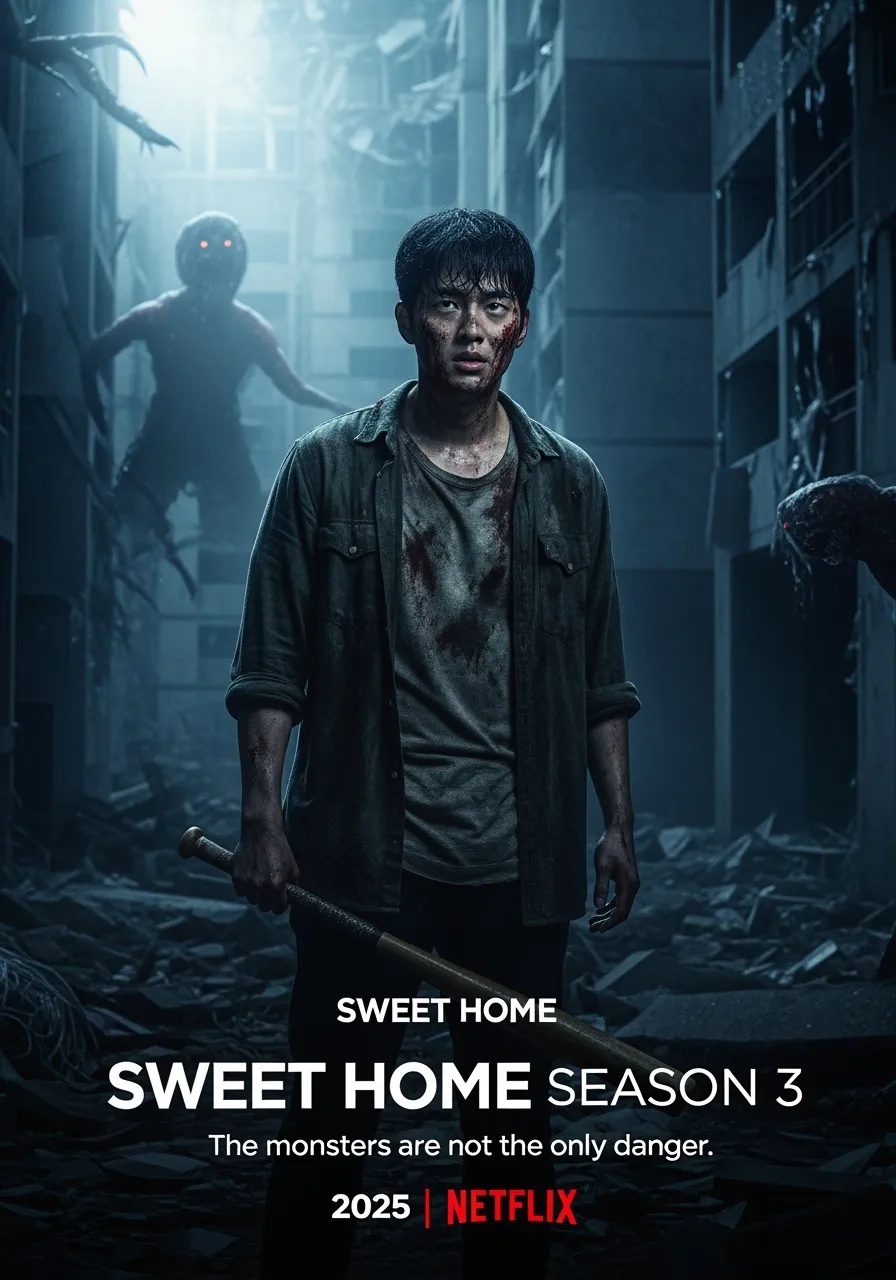In a genre flooded with thrillers that lean on shock and spectacle, Recalled sets itself apart through quiet tension, controlled dread, and an unraveling of reality that feels deeply personal. At first glance, the film tells a familiar story—a woman waking up after an accident with no recollection of her past. But beneath this familiar frame is something far more insidious: a descent not into madness, but into a twisted version of truth that hides behind memories we never chose, and futures we were never meant to see.
The film follows Soo-jin, a woman whose life has been shattered—physically, mentally, and spiritually—by a traumatic accident. When she awakens, her husband Ji-hoon is there, calm and attentive, doing his best to help her navigate through the fog of amnesia. Their apartment is neat. Their marriage seems tender. The world is stable. But it doesn't take long before the fractures begin to show.
Soo-jin starts experiencing visions—brief, fragmented glimpses of events that seem impossible. She sees strangers in danger, terrible things happening in alleyways, in hallways, in parks. At first, she chalks it up to hallucinations or trauma. But when these events begin to come true, one after another, the question shifts: are these memories? Are they premonitions? Or are they something much worse—distorted pieces of a truth she’s not supposed to find?

What Recalled does brilliantly is immerse us in her confusion. The narrative is filtered through Soo-jin’s eyes, and her world is shaky, shifting, never quite real. Her own husband becomes a question mark. What was once a source of comfort becomes a source of dread. His calmness seems rehearsed. His concern feels too polished. There are things he’s not telling her, and her mind—both fractured and expanding—is desperate to fill in the blanks. But the more she sees, the less she understands.
The film builds tension not with loud crescendos, but with silence. Empty hallways. Overexposed light. A door left slightly ajar. The mundanity of everyday life becomes a threat—because Soo-jin, and the audience with her, no longer knows what is real. This is psychological horror in its purest form: the horror of mistrust, of false memory, of recognizing a reflection and not knowing whose face is staring back.

At the center of this emotional hurricane is Seo Ye-ji’s stunning performance. She gives Soo-jin not just fragility, but fire. Her portrayal evolves from confusion to fear to a quietly burning rage, anchored in an urgent need to reclaim her own reality. It’s not just that she wants to remember—she wants to control what remembering means. She wants agency. She wants to know what part of her past was taken from her, and by whom.
The structure of the film is tightly wound. Flash-forwards and premonitions bleed into real-time events with little warning, creating a deliberate disorientation. Every new sequence demands interpretation: is this happening now, or is it coming? Is it her future, or someone else’s memory? It’s a narrative game that the film plays ruthlessly, keeping the audience off-balance until the final act delivers a series of reveals that cast the entire film in a new and far darker light.

But Recalled isn’t content with just plot twists—it wants to hurt a little. It wants to remind the audience that trauma isn’t just about what happened; it’s about how we carry what we think happened. And when memory itself becomes unreliable, the identity built upon it begins to crumble. What is left, then? What defines us when even our most personal truths might be illusions?
Thematically, the film touches on emotional manipulation, domestic control, and the terrifying thinness of the line between love and possession. It poses a subtle but harrowing question: what if the person who holds you in their arms the moment you wake up is the same person who destroyed who you were before? That tension haunts every frame, making even soft conversations feel like veiled threats.
Visually, Recalled uses cool, sterile color palettes to reflect Soo-jin’s emotional alienation. The world she walks through is clean but cold, familiar but unwelcoming. This aesthetic detachment mirrors her inner void—a life filled with objects, places, people that she’s told are hers, but that carry no meaning. As she begins piecing together her past, the film's look subtly shifts, gaining warmth and weight, until the final scenes no longer feel surreal—but devastatingly human.

The ending, when it comes, is not meant to satisfy. It is meant to sting. It reframes every gesture, every moment of comfort, every memory recovered. It asks the audience to sit with discomfort, not just with what happened to Soo-jin, but with how easily someone’s entire world can be manufactured—and how pain, once buried, always claws its way back up.
Recalled is not flashy. It is not loud. But it lingers. It seeps in slowly and stays with you long after. It’s a film about memory that behaves like a memory itself—uncertain, fragmented, hard to pin down, and impossible to forget. In the end, it’s not about what Soo-jin remembers. It’s about what she chooses to believe—and what she dares to do once the truth is no longer a threat, but a weapon.
-1751596579-q80.webp)

-1747716802-q80.webp)
-1740282288-q80.webp)
